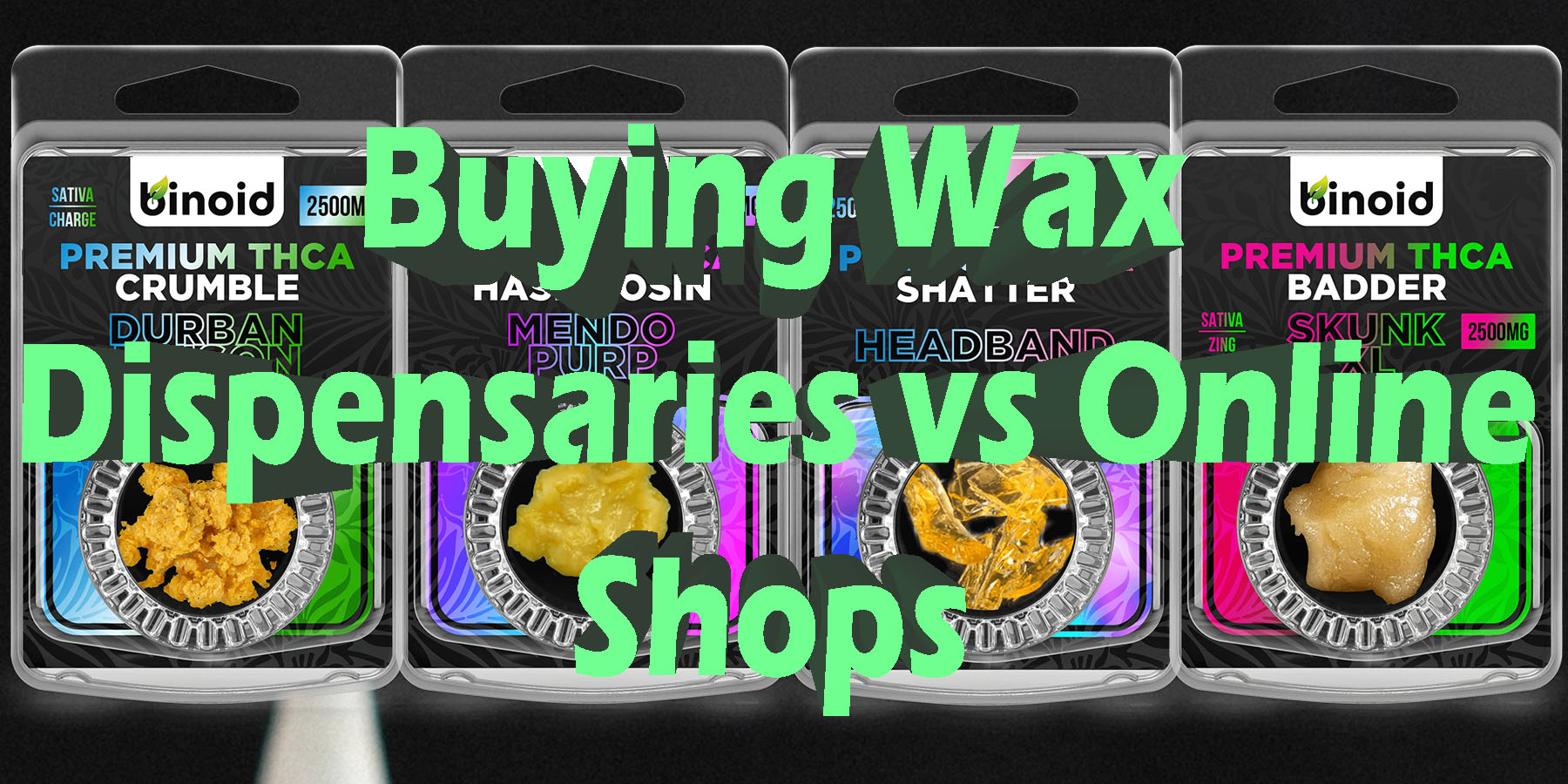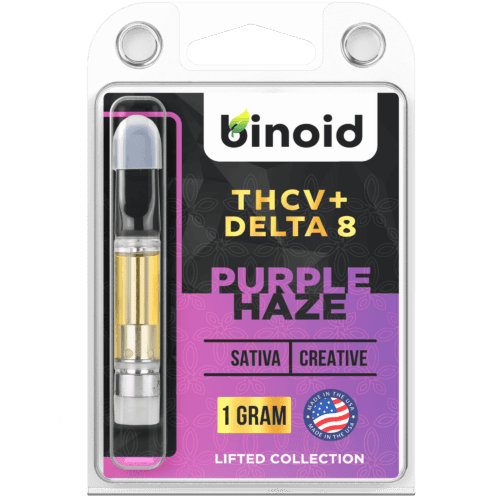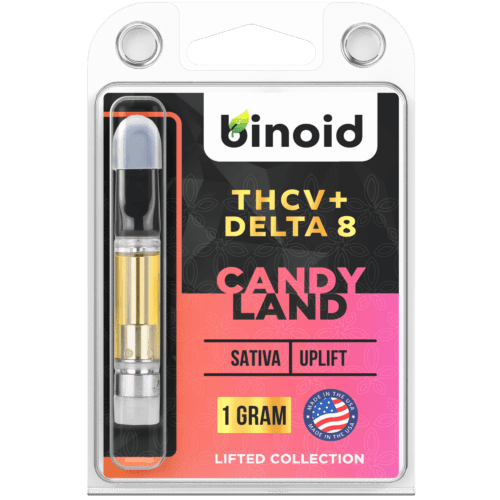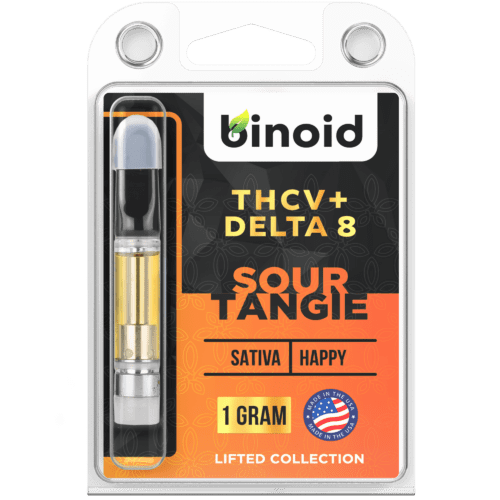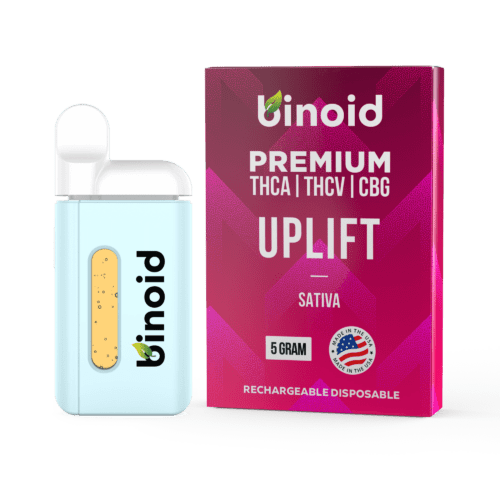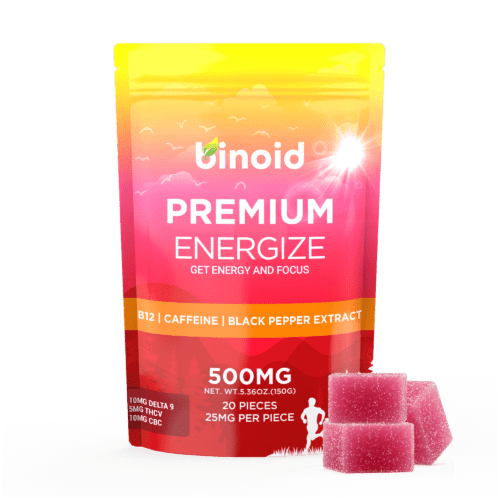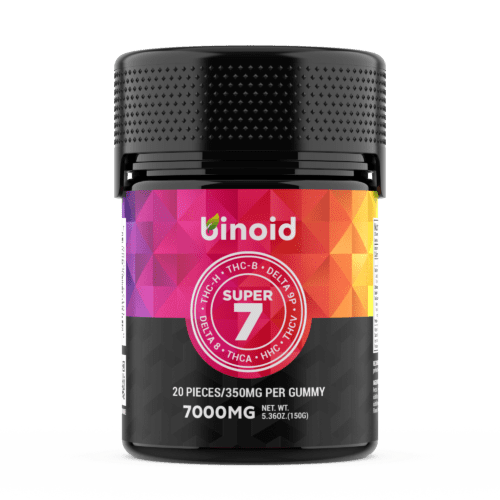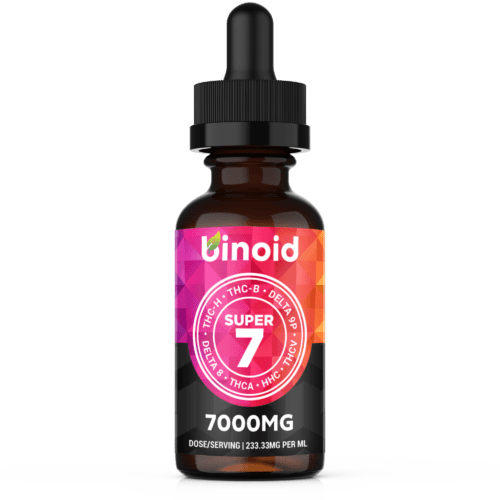The ever-expanding universe of cannabinoids continually introduces enthusiasts to novel compounds, each with a unique profile sparking curiosity and conversation. Among these, THCV, has been steadily gaining attention, distinguished by characteristics that set it apart. As interest in THCV burgeons, the practical question of sourcing it naturally arises. Consumers across the USA are often faced with a familiar choice: the established route of a physical dispensary or the vast, dynamic landscape of online cannabis and hemp shops.
Making the right decision is pivotal to your experience, and understanding this choice begins with exploring the avenues themselves. That’s why this exploration is designed to illuminate these options, providing a clear and balanced perspective on what each purchasing environment entails, without making unsubstantiated claims, thereby empowering you to navigate your THCV journey with confidence.
TO BUY THCV PRODUCTS CLICK HERE
Recommended products
Getting to Know Cannabis Dispensaries and Online Cannabis/Hemp Shops and Their Purposes
Before diving into the specifics of acquiring THCV, it’s beneficial to establish a clear understanding of the two primary retail environments that serve consumers in the wider cannabis and hemp market. Both traditional brick-and-mortar dispensaries and their digital counterparts, online shops, fulfill essential, though sometimes convergent, roles in providing access to a spectrum of compounds and related products. Each operates under distinct models, presents a unique atmosphere, and engages with customers differently, all shaped by the evolving regulatory frameworks and consumer preferences within the United States.
Understanding Cannabis Dispensaries and Their Purpose
A cannabis dispensary is a state-licensed, physical retail establishment legally authorized to sell cannabis and cannabis-derived products to eligible consumers. These storefronts often represent the most traditional and visible points of access, particularly in states that have implemented regulated medical or adult-use cannabis programs. The actual physical structure of a dispensary can range dramatically, from minimalist, secure facilities that prioritize efficiency to elaborately designed boutiques that emulate high-end retail experiences. Regardless of their specific aesthetic, all dispensaries are meticulously designed with stringent security measures and regulatory compliance at their core, typically featuring controlled access points where staff verify age and, where applicable, medical cannabis registration before granting entry to the product display and sales areas.
Upon entering the main section of a dispensary, customers are usually greeted by well-lit display cases featuring a diverse array of products, often organized by category such as flower, edibles, concentrates, tinctures, and topicals. The ambiance is generally cultivated to be both informative and welcoming, with trained staff members, commonly referred to as “budtenders,” on hand to assist patrons with their selections and answer questions. These individuals are expected to possess a solid understanding of the dispensary’s inventory, including cannabinoid profiles, potential effects, and recommended usage, to help customers make choices that align with their preferences and desired outcomes.
The inherent design of a dispensary encourages direct interaction with both staff and products, offering a tactile and personalized shopping journey. The fundamental purpose of a dispensary extends well beyond the mere transactional sale of cannabis goods; it also functions as a crucial hub for consumer education and, in many localities, stands as a symbol of the shifting legal and cultural perspectives surrounding cannabis. Dispensaries bear the significant responsibility of ensuring that every sale strictly adheres to all applicable state and local laws, which can encompass limitations on purchase quantities, exacting packaging and labeling requirements, and comprehensive sales tracking for regulatory oversight.
This unwavering commitment to a robust regulatory framework is a hallmark of licensed dispensaries, aiming to provide a secure and legitimate channel for cannabis access while diligently preventing diversion to unregulated or illicit markets. Furthermore, dispensaries frequently play a vital role in advancing consumer knowledge by offering educational materials, hosting informational sessions, or providing one-on-one consultations to help individuals navigate the complex and varied world of cannabis. This educational aspect can be especially valuable for individuals new to cannabis or those exploring unfamiliar cannabinoids or consumption methods for the first time.
By fostering a controlled, professional, and informative environment, dispensaries strive to destigmatize cannabis consumption and actively promote responsible use among their clientele. They are, effectively, the frontline representatives of the legal cannabis industry, interfacing directly between cultivators, product manufacturers, and the end-users within a highly structured system.
Understanding Online Cannabis/Hemp Shop and Their Purpose
An online cannabis or hemp shop operates as a digital, e-commerce platform, providing customers with the convenience of Browse, selecting, and purchasing a wide range of hemp-derived products for direct delivery to their residence. Unlike their brick-and-mortar counterparts, these internet-based retailers are not constrained by the same physical or geographical limitations, enabling them to potentially serve a much broader customer base, often extending across state lines where permitted by federal and individual state legislation regarding hemp products like THCV.
The “physical structure” of such a shop is its website or mobile application, meticulously designed to ensure user-friendly navigation, intuitive product discovery, robust search functionalities, and secure, encrypted transaction processing, often supplemented by extensive product descriptions, high-quality imagery, customer-generated reviews, and educational blog content.
The primary objective of an online hemp shop is to offer unparalleled convenience, discretion, and access to an extensive assortment of hemp-derived items. These e-commerce businesses can operate based on several models: some function as direct-to-consumer (DTC) brands, which means they develop, manufacture, and sell their own proprietary line of products exclusively through their online portal, thereby maintaining tight control over the entire process from sourcing raw materials to final product quality and branding.
Alternatively, other online shops function more akin to digital marketplaces, curating and retailing products from a diverse array of external brands, thereby offering consumers a significantly wider selection and the ability to compare different manufacturers and product formulations all in one virtual location. This marketplace model simplifies the comparison process for consumers.
These digital retailers place a strong emphasis on optimizing the overall customer experience through sophisticated and intuitive web design, the provision of comprehensive and transparent product information, and the availability of responsive and helpful customer support, frequently accessible via integrated live chat features, dedicated email channels, or telephone helplines. Significant investment is made in state-of-the-art, secure payment gateway systems and discreet, unbranded packaging protocols to safeguard customer privacy and ensure satisfaction upon delivery.
Plus, a vast majority of reputable online hemp retailers underscore their commitment to transparency and quality assurance by prominently displaying third-party laboratory test results, widely known as Certificates of Analysis (CoAs), directly on their respective product pages or through a dedicated, easily accessible portal on their site.
Ultimately, online cannabis and hemp shops are engineered to streamline the purchasing journey, making it as seamless, informative, and efficient as possible for a modern clientele that increasingly values convenience, extensive choice, and the autonomy to shop from any location at any time. They skillfully leverage advanced digital marketing strategies, search engine optimization, and rich educational content to effectively reach, engage, and inform their target audience, playing an instrumental role in enhancing the accessibility and contributing to the broader normalization of federally legal hemp-derived cannabinoids throughout the United States. Their entire operational framework is founded upon principles of logistical precision, cutting-edge e-commerce technology, robust inventory management, and a profound, continually updated understanding of the dynamic legal, regulatory, and market landscapes governing hemp-based products.
Recommended products
Exploring the Highly Motivated Cannabinoid Known as THCV
With a clearer picture of where cannabis and hemp products are typically found, our journey now takes us into the fascinating world of a particular cannabinoid that has been steadily capturing attention for its unique characteristics: Tetrahydrocannabivarin (THCV). For starters, while THCV is structurally related to the more famous THC, it still carves out its own distinct niche within the vast spectrum of phytochemicals produced by the cannabis and hemp plants. Often associated with specific effects that differentiate it from other cannabinoids, THCV has intrigued both researchers and consumers alike, leading to a surge in interest regarding its potential applications and the experiences it might offer.
Its growing reputation is built on a profile that many describe as energizing and focused, making it a subject of keen interest for those looking to explore cannabinoids beyond the usual suspects. The allure of THCV lies in its subtleties and its reported capacity to interact with the body in ways that are still being actively investigated and understood, highlighting the diverse molecular treasures cannabis continues to unveil.
The history of THCV, much like that of many other minor cannabinoids, is intertwined with the broader scientific exploration of the cannabis plant that began in earnest in the mid-20th century. While THC and CBD were identified and synthesized relatively early, THCV (specifically Δ9-THCV) was first reported in 1971 by Merkus, and its presence was noted in certain cannabis varieties, particularly landrace sativa strains originating from Africa. For many years, however, it remained a relatively obscure compound, overshadowed by the intense research focus on Delta-9 THC.
The initial discoveries noted its structural similarity to THC but also hinted at a different pharmacological profile. It wasn’t until the legal landscape began to shift, coupled with advancements in analytical and extraction technologies, that THCV started to emerge from the shadows, allowing for more targeted cultivation of THCV-rich chemovars and more sophisticated methods for its isolation and study. This resurgence has been fueled by anecdotal reports and preliminary scientific inquiries suggesting unique interactions with the endocannabinoid system.
Delving into its scientific makeup, Tetrahydrocannabivarin (C19H26O2) is a homologue of THC, meaning it shares a similar core structure but differs by the length of its alkyl side chain; THCV has a propyl (3-carbon) side chain, whereas THC has a pentyl (5-carbon) side chain. This seemingly small variation in molecular architecture is profoundly significant, as it dramatically alters how THCV interacts with the body’s cannabinoid receptors, particularly CB1 and CB2.
Interestingly, studies suggest THCV can act as a CB1 receptor antagonist or inverse agonist at low doses, potentially blocking some of THC’s effects, while at higher doses, it may act as a CB1 receptor agonist, similar to THC, leading to psychoactive effects. Its biosynthesis in the cannabis plant occurs via a different pathway than THC, starting from cannabigerovarinic acid (CBGVA) rather than cannabigerolic acid (CBGA), which then converts to tetrahydrocannabivarinic acid (THCVA) and finally decarboxylates into THCV with heat or light.
When it comes to the experiences it offers, THCV is frequently associated with effects that are quite distinct from the more common THC-dominant profiles, earning it nicknames in popular culture that hint at its perceived characteristics—though these should be approached with an understanding that individual reactions vary widely. Anecdotal reports and some preliminary research often describe THCV as promoting a clear-headed, stimulating, and energizing sense of euphoria, which many users find conducive to focus, productivity, and daytime activities without the intense cognitive clouding some associate with THC.
One of the most discussed potential properties of THCV, supported by early-stage animal studies and some human trials, is its interaction with appetite, with some research suggesting it may not stimulate appetite in the same way as THC and, in some contexts, might even act as an appetite suppressant, although more robust clinical research is needed to confirm these effects definitively in humans. The duration of its effects is also often reported to be shorter than that of THC.
THCV is becoming increasingly available in a diverse range of product types and delivery methods, catering to a variety of consumer preferences and desired experiences as its popularity grows. Below are some of an array of common forms you might encounter:
Flower: While naturally occurring THCV-dominant flower is less common than high-THC or high-CBD strains, cultivators are increasingly developing specific chemovars with higher THCV content; this can be found as Loose Buds, which may be Indoor Flower (cultivated in controlled indoor environments for premium quality and specific cannabinoid profiles), Outdoor Flower (grown outdoors, often more cost-effective but potentially with more variable THCV levels), or Flower Smalls (smaller buds from THCV-rich plants sold at a lower price). Pre-Rolls containing THCV-rich flower or THCV-infused hemp flower also offer a convenient, ready-to-use option for those who prefer inhalation without the need for preparation.
Vapes: Vaping THCV is a favored method due to its rapid onset, allowing for more immediate effects and easier titration of experience. Products typically include Pre-filled Cartridges designed to attach to a standard 510-thread battery, containing THCV distillate often blended with other cannabinoids and specific strains and terpenes to modulate effects and enhance flavor. Disposable Vape Pens are also popular, offering an all-in-one, pre-charged, and pre-filled device that provides ultimate convenience and portability, ideal for on-the-go use until the THCV distillate is fully consumed.
Edibles: These provide a smoke-free, often deliciously flavorful, and precisely dosed way to consume THCV, with effects that are generally longer-lasting but have a slower onset as the cannabinoid is processed through the digestive system. Popular forms include Gummies, which are widely available in various flavors, shapes, and specified THCV potencies. Other candies, such as hard candies or chews, and mints also offer enjoyable and discreet edible options, appealing to consumers who prefer not to inhale or who seek extended duration effects.
Drinks & Beverages: An innovative and rapidly emerging category in the cannabinoid market, THCV-infused drinks and beverages offer a novel, refreshing, and sociable way to consume this unique compound. These can range from sparkling seltzers and fruit-flavored sodas to versatile drink enhancers or powders that can be easily mixed into any preferred beverage. They often provide an alternative to traditional solid edibles, sometimes with a slightly quicker absorption rate due to different metabolic processing, making for a distinct and enjoyable experience.
Dabs/Concentrates: For more experienced cannabinoid users seeking higher potency and a very rapid onset of THCV’s unique effects, dabs or concentrates are an option, though perhaps not as widely available as for other cannabinoids. These highly concentrated forms, such as wax, shatter, or pure distillate, are vaporized using a specialized dab rig or a concentrate-compatible vape pen. Dabbing allows for the inhalation of a very potent dose of THCV, leading to more pronounced and immediate sensations, though caution is advised due to the intensity.
Tinctures: Consist of THCV extract, often isolated or broad-spectrum, infused into a carrier oil such as MCT oil, hemp seed oil, or olive oil, and are typically packaged in a glass bottle equipped with a calibrated dropper for precise sublingual administration. Users place the desired number of drops under the tongue, where the THCV is rapidly absorbed through the mucous membranes directly into the bloodstream, offering a relatively quick onset of effects compared to edibles and allowing for meticulous dosage control. Tinctures can also be mixed into foods or drinks if preferred.
Capsules/Tablets: Similar to traditional vitamins or pharmaceutical supplements, THCV capsules or tablets offer an exceptionally discreet, convenient, and pre-measured oral consumption method for taking THCV. They are swallowed like any other pill, and their effects are generally similar in onset time and duration to other edible forms, as they are processed through the digestive system. This method is particularly ideal for individuals seeking highly consistent and reliable dosing without any associated taste or aroma.
Recommended products
Why Can THCV Be Found at Either a Dispensary or an Online Shop?
The presence of THCV products in both state-licensed dispensaries and online e-commerce platforms is primarily governed by its source and its legal classification under both federal and state laws within the USA, particularly in light of the 2018 Farm Bill. This pivotal piece of federal legislation legalized hemp and hemp-derived compounds, defining hemp as cannabis containing no more than 0.3% Delta-9 THC by dry weight. Consequently, if THCV is extracted or synthesized from compliant hemp and the final product adheres to this Delta-9 THC limit, it can often be sold online and shipped across many state lines.
However, THCV can also be present in marijuana, which remains federally illegal but is legal for medical or adult use in many individual states. THCV derived from marijuana (i.e., cannabis with more than 0.3% Delta-9 THC) is restricted to sale within state-licensed dispensary systems in those specific jurisdictions. Furthermore, the legal landscape for all cannabinoids, including hemp-derived ones like THCV, is subject to varying and sometimes rapidly changing state and local regulations, with some states having specific restrictions or bans on certain cannabinoids regardless of their federal hemp-derived status. Therefore, dispensaries in legal marijuana states are natural outlets for marijuana-derived THCV, while online shops primarily cater to the market for hemp-derived THCV, contingent upon state-level acceptance.
Breaking Down the THCV Buying Matchup: Dispensaries vs. Online Shops
Selecting the optimal source for your THCV products requires a nuanced assessment of several key factors – from the variety and specificity of available items and their associated price points to the level of purchasing ease and the particular ambiance of the shopping environment you prefer. While both established physical dispensaries and the rapidly expanding online retail sector offer persuasive reasons for patronage, they ultimately serve differing consumer needs and are distinguished by their unique sets of benefits and potential limitations.
Appreciating the intricacies of this comparison calls for a detailed review of what each retail model furnishes, thereby enabling individuals to make a well-grounded decision that harmonizes with their personal requirements and shopping inclinations within the dynamic landscape of cannabinoid access.
Contender #1: Dispensaries
Venturing into a state-licensed dispensary to explore THCV products can be a highly appealing option, especially for consumers residing in states with established medical or adult-use cannabis programs. These regulated establishments often provide a secure and curated environment where individuals can find THCV products, particularly those derived from marijuana, which would not be available through general online hemp retailers due to federal law. The controlled nature of dispensaries means that products typically undergo state-mandated testing for potency and purity, offering a layer of consumer assurance that aligns with that specific state’s regulatory framework, which can be a significant factor for those prioritizing compliance and localized oversight.
The primary allure of a dispensary frequently lies in the opportunity for direct, in-person interaction with knowledgeable staff and the ability to physically see (and sometimes, depending on product type and local rules, inspect packaging more closely) before purchasing. This hands-on consultative approach can prove exceptionally beneficial for individuals new to THCV or those who have specific questions regarding different product formulations, potential effects, or appropriate dosing strategies. Budtenders can offer personalized recommendations tailored to stated preferences and desired outcomes, guiding consumers through the available THCV options. In fact, a significant advantage is the immediacy of purchase; customers leave with their chosen products in hand, eliminating any anticipation or potential delays associated with shipping.
Pros & Cons
Evaluating dispensaries involves considering both their strong points and their limitations. The very nature of their physical, regulated existence shapes these aspects, offering a unique set of benefits alongside some inherent drawbacks when compared to the digital marketplace, especially when seeking out a specific cannabinoid like THCV.
Recommended products
Pros:
Immediate Product Access: A standout advantage is the ability to acquire your THCV products instantly, walking out with them on the same day of purchase. This eliminates any waiting period for shipping, which is highly valued by consumers who prefer not to delay their access or who have an immediate need.
In-Person Expert Advice: Dispensaries offer the valuable opportunity for face-to-face consultation with budtenders or staff who often possess specialized knowledge about cannabinoids like THCV. They can provide tailored guidance, answer nuanced questions about effects or sourcing, and help navigate the product selection based on your individual curiosity and comfort level.
Access to Marijuana-Derived THCV: In states with legal cannabis programs, dispensaries are the exclusive source for THCV products derived from marijuana, which may offer different profiles or concentrations than hemp-derived alternatives. This can be crucial for consumers specifically seeking such products under a state-regulated system.
Supporting Local Regulated Businesses: Purchasing from a local, licensed dispensary means your funds directly support a state-regulated business operating within your community. This contributes to the local economy and the compliant cannabis industry, a factor many consumers appreciate.
Assured State-Level Compliance: Products sold in licensed dispensaries must adhere to the specific testing, labeling, and safety standards mandated by that state’s cannabis control board. This can provide a certain level of confidence regarding the product’s regulatory compliance and adherence to local safety benchmarks.
Reduced Risk of Shipping Complications: Buying in person entirely sidesteps potential shipping issues such as delays, damage to the product during transit, or concerns about package security upon delivery. The transaction is direct and complete at the point of sale.
Tangible Shopping Experience: For many, the ability to be in a physical store, see product packaging, and engage with a human expert offers a more comfortable and reassuring shopping experience than navigating an online interface. This tangible aspect can be particularly important when exploring new or less familiar products like THCV.
Cons:
Limited Geographic Availability & Access: Access is strictly confined to individuals residing in or able to travel to states with operational, licensed dispensaries that also stock THCV products. This significantly restricts availability for a large portion of the US population.
Potentially Higher Price Points: The considerable overhead costs associated with operating a physical retail dispensary—including prime real estate, extensive staffing, robust security systems, and regulatory compliance burdens—can often lead to higher consumer prices for THCV products compared to online retailers.
Narrower Selection of Hemp-Derived THCV: While dispensaries excel in marijuana-derived products, their selection of purely hemp-derived THCV (which might be preferred by some for legal or other reasons) can sometimes be more limited than the specialized offerings found on dedicated online hemp platforms.
Less Anonymity and Discretion: Purchasing THCV products at a physical dispensary involves an in-person transaction and often requires showing identification, offering less privacy and discretion compared to the experience of ordering online from home.
Contender #2: Online Shops
Online hemp shops have rapidly ascended as a major channel for consumers seeking hemp-derived cannabinoids, including the increasingly popular THCV, presenting a purchasing experience that contrasts sharply with traditional dispensary visits. Their foremost appeal is rooted in exceptional convenience and widespread accessibility, empowering individuals to browse, research, and purchase THCV products from virtually any location within the United States, provided that state and local laws are permissive of such sales and shipments. These digital storefronts typically feature a remarkably extensive catalog of THCV products sourced from a multitude of brands, encompassing diverse formulations such as tinctures, edibles, vapes, and capsules, often far exceeding the specialized THCV inventory a standard physical dispensary might maintain, thereby offering consumers superior breadth of choice.
Moreover, reputable online retailers in the hemp space generally make transparency a cornerstone of their operations, most notably by ensuring easy access to comprehensive third-party laboratory reports, or Certificates of Analysis (CoAs), for each THCV product they offer. This crucial practice allows customers to independently scrutinize and verify essential details such as the precise THCV potency, the full cannabinoid profile (including ensuring compliance with the <0.3% Delta-9 THC federal limit), and the absence of harmful contaminants like pesticides, heavy metals, or residual solvents.
Such readily available documentation fosters a strong sense of trust and facilitates highly informed purchasing decisions. Additionally, the prevalent direct-to-consumer (DTC) or lean marketplace models adopted by many online shops often contribute to more competitive pricing structures due to significantly lower operational overheads compared to brick-and-mortar retail.
Recommended products
Pros & Cons
The digital marketplace for THCV presents its own unique array of benefits and drawbacks that shape the consumer experience. Before you finalize an online purchase, considering these potential advantages and disadvantages will help ensure your choice aligns with your needs and expectations when seeking this specific cannabinoid.
Pros:
Exceptional Convenience and 24/7 Accessibility: The foremost advantage is the unparalleled ease of shopping for THCV products at any time, day or night, directly from the comfort and privacy of your home or any location with internet access. This entirely removes the necessity for travel, adhering to restrictive store operating hours, or waiting in queues.
Vastly Wider Selection of THCV Products: Online shops frequently provide access to a significantly broader and more diverse assortment of THCV-specific brands, product formulations (e.g., isolates vs. full-spectrum extracts), potencies, and innovative delivery methods compared to the often limited THCV stock in physical dispensaries.
Competitive Pricing and Frequent Promotions: Due to reduced overhead expenses (such as no need for physical retail space and often leaner staffing models), online THCV retailers can frequently offer more attractive pricing. Consumers also typically benefit from easier access to discounts, promotional codes, bundle deals, and loyalty reward programs.
Direct Access to Third-Party Lab Reports (CoAs): Reputable online vendors almost universally provide prominent and easily accessible third-party CoAs for their THCV products. This crucial transparency empowers consumers to meticulously verify cannabinoid content, purity, and safety prior to making any purchase.
Enhanced Shopping Discretion and Privacy: For individuals who prioritize confidentiality, online shopping offers a highly discreet experience from initial product Browse through to secure checkout. THCV products are typically shipped in plain, inconspicuous packaging directly to the customer’s designated address.
Abundance of Customer Reviews and Shared Experiences: Online platforms host a wealth of user-generated reviews, product ratings, and detailed testimonials for both THCV items and the vendors themselves. This collective peer feedback can be an invaluable resource for assessing product quality, potential efficacy, and the overall reliability of an online shop.
Rich Educational Resources on THCV: Many leading online hemp retailers invest significantly in creating and curating extensive educational content, including in-depth blog posts, informative articles, and comprehensive FAQs specifically about THCV, its properties, usage, and the science behind it.
Broader Geographic Reach (State Law Permitting): Provided THCV derived from hemp is legal and not restricted in your specific state, online shops can often deliver products directly to your doorstep, which is particularly advantageous if no local dispensaries carry THCV or if you reside in a more remote or underserved area.
Cons:
Shipping Times and Potential Costs: Unlike the instant acquisition at a dispensary, purchasing THCV online necessitates waiting for the product to be shipped and delivered, which can range from a few business days to a week or more. Furthermore, shipping fees may be applicable, particularly for smaller orders, though many vendors do offer free shipping thresholds.
Inability to Physically Inspect Products Before Purchase: A notable drawback of online shopping is the absence of an opportunity to physically see, handle, or (where relevant for items like flower) smell the THCV products before buying. Consumers must rely entirely on website descriptions, provided images, and customer reviews to gauge quality.
Higher Risk of Encountering Disreputable Sellers: The expansive nature of the internet means there is an increased potential for encountering less reputable vendors offering substandard, counterfeit, or inaccurately labeled THCV products. Thorough due diligence and careful vetting of online shops are essential to mitigate this risk.
No Access to Marijuana-Derived THCV Products: Online hemp shops are restricted by federal law to selling only hemp-derived products containing less than 0.3% Delta-9 THC. They cannot legally offer THCV products derived from marijuana, which may be preferred by some consumers and are only available in licensed state dispensaries.
Recommended products
Which Option is the Best for Your THCV Needs?
Navigating the path to your preferred THCV experience culminates in a choice that mirrors your individual priorities within an ever-evolving marketplace. While local dispensaries certainly offer the undeniable benefit of immediate product acquisition and direct personal interaction, the clear trajectory of specialized cannabinoid procurement—especially for nuanced compounds like THCV—increasingly highlights the sophisticated advantages of the digital frontier. It is within this expansive online ecosystem, like at Binoid, that the discerning modern consumer frequently discovers an unparalleled synthesis of comprehensive product variety, readily accessible in-depth information, and verifiable operational transparency, all of which are keystones of a genuinely empowered purchasing journey.
Therefore, the truly optimal avenue is the one that not only delivers the product you seek but also instills the profound confidence and clarity that arise from a meticulously informed decision, allowing you to fully appreciate your exploration of THCV. Basically, the wisest path isn’t merely about obtaining a product; it’s about embracing the clarity and assurance that come from a well-researched decision, elevating your entire THCV experience.

